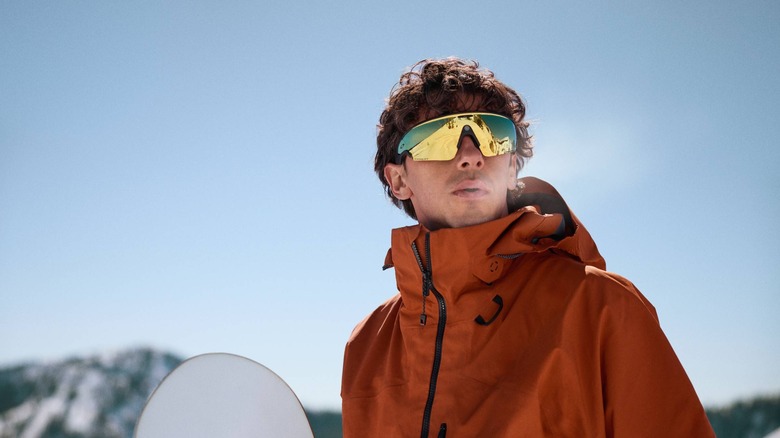3 New AI Smart Glasses Make Their Debut At Meta Connect 2025
Before ending the keynote at Meta Connect 2025 on September 17, Mark Zuckerberg and the team behind Meta's ongoing AI efforts showed off three new pairs of AI smart glasses in its ongoing bid to "bring personal superintelligence to everyone."
We've been hearing rumors about what Meta's new smart glasses might be capable of doing in the future, and even what they might cost. We've also seen the company push out some big updates for its wearables this year, like live conversation translations in its older Ray-Ban smart glasses.
Now, though, the company has unveiled three new models of smart glasses — one that builds on its previous Ray-Ban partnership, another partnership with Oakley, and a Ray-Ban option that pairs with the new Meta Neural Band. Each of these new pairs of smart glasses seem to have been built for different situations, though, so you'll have to decide for yourself which one fits you the best.
Ray-Ban Meta (Gen 2) build off previous generations
The first new pair of smart glasses that Meta showed off were the Ray-Ban Meta (Gen 2). These are, as the name implies, the second generation of Meta's AI smart glasses that it previously built alongside Ray-Ban. The new model comes with extended battery life, as Meta claims that they'll deliver up to two times the battery life of their predecessor.
On top of that, they also allow for up to 3K video recording, which Meta claims is "more than double the previous number of pixels" available in video recording for the Ray-Ban Meta (Gen 1). Alongside improved battery and video capabilities, Meta is also introducing a conversation focus feature, which will help you focus and hear better while navigating loud environments.
This should, hypothetically, make hearing in busy restaurants easier, as well as hearing on the train to work, at concerts, and in other busy environments. This feature is also coming to the Ray-Ban Meta (Gen 1) glasses, as well as Meta's Oakley HSTN glasses through future software updates. The Ray-Ban Meta (Gen 2) will start at $379, and they're available on Meta's website starting today. You'll have multiple variants to choose from, so you can find a style that really fits you.
Meta's new 'performance AI glasses'
Alongside the new Ray-Ban Meta (Gen 2), Meta is also launching the Oakley Meta Vanguard, a pair of AI smart glasses that the company calls the "next era for performance AI glasses." These new glasses look like something straight out of a science fiction film, and Meta claims they have the "durability to withstand high-intensity sports and rugged outdoor adventures."
With a battery that can last up to nine hours with mixed usage, the Oakley Meta Vanguard also come with a camera that has a wider 122-degree field of view, and 3K video support with stabilization built in. Additionally, the on-device open-ear speakers are Meta's most powerful to date, and they can provide advanced noise reduction in winds up to 30 miles per hour.
Meta is also integrating both Strava and Garmin directly into the Meta AI app, which will let you track information in real-time, hands-free. Because these glasses are designed for sports environments, Meta says they come with an IP67 dust-resistance rating. They are available to preorder starting today, they start at $499, and they are set to ship on October 21.
Meta introduces its 'window into the future'
As usual with Meta, the company is taking a very broad stance on what will be possible with the power of AI as companies continue to develop and expand AI's capabilities. To do this with its smart glasses, Meta is introducing the Meta Ray-Ban Display, a pairing of smart glasses that match the Ray-Ban style to Meta's own Meta Neural Band, while also introducing the company's first AI glasses with a high-resolution monocular display.
Meta says the display on the glasses is big enough to read text messages and watch a small video, and that it will disappear after a few seconds when you aren't using it to help avoid distractions. The glasses support 42 pixels per degree, allowing for a higher resolution than any current consumer VR headset on the market (based on Meta's claims).
The screens built into the device have a maximum brightness of 5,000 nits, so they should work both indoors and outdoors, even on those super bright summer days. These glasses will be available to purchase on September 30, and will start at $799. Meta hasn't fully explained what will be possible with its neural band, but considering it has claimed that its AI is showing signs of self-improvement, those looking to get as connected to the metaverse as possible will likely want to check out the latest offerings from Meta.



